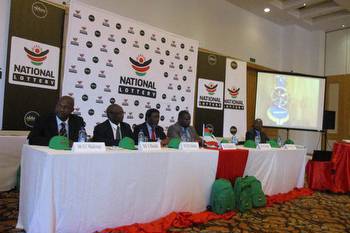DA Submits Bill to Regulate Remote Gambling in South Africa

Recently, the Democratic Alliance (DA), the formal opposition to the governing South African-based African National Congress (ANC), officially submitted the fresh legislation, dubbed the Remote Gambling Bill (B11-2024), to the Parliament. The bill’s ultimate goal is to govern remote gambling in South Africa.
The reason for the new legislation:
The legislation comes after over 2 years of consultation with industry professionals and drafting. In addition, this step comes in response to a notable mistake made by the ANC in its failure to offer proper regulation and safeguards within the iGaming industry.
National Gambling Amendment Act, which is responsible for the official regulation of iGaming. Nonetheless, after almost sixteen years, it still hasn’t entered into force, which means the industry still has a legal void.
This is very worrying considering the great advances and strides that internet usage has seen since that time. Failure to officially regulate this particular form of gambling encourages criminal activity and the erosion of the rule of law. At the same time, the public isn’t safeguarded to the same levels as they are when utilizing land-based gaming businesses. Simultaneously, the absence of regulation leads to the loss of jobs from other gambling jurisdictions and billions of Rand in income.
Furthermore, over the past sixteen years, the ANC has made it clear that it has no intent of safeguarding the industry and players from the elements of crime. That is why the DA has taken the responsibility to provide sufficient protection in this way, i.e. through a private member’s formal submission of the mentioned legislation.
Description of the legislation:
The legislation’s primary goal is to formally regulate licensing, which will be overseen by certain provincial officials, rather than a centralized national gambling board, which now functions as a mere shadow of what it once was. In addition, another objective is to ensure compliance with the Financial Intelligence Centre Act 38 (FICA) of 2001, protect minors and vulnerable persons, regulate the advertising of interactive/ online gambling entities, and provide procedures for complaints related to the issuance of licenses.
As already mentioned, the legislation has been in the process of drafting for more than 2 years to find and achieve the ideal balance between administration, regulation, and protection, according to the official press release.
Relatedly, with the provincial and national elections approaching on May 29, it appears that the ANC will fall under the fifty percent majority mark, meaning that it will not have the most votes in the freshly formed Parliament to dismiss the bill on shallow grounds alone out of revenge because the sponsor is an individual from the opposition party.
Legislations such as the Remote Gambling Bill (B11-2024) (pdf) represent a crucial link in safeguarding at-risk individuals. Once the ANC is out of the way, the DA may make sure this will be the 1st of a large number of legislations to be brought forward to save the regulated market of South Africa.




































